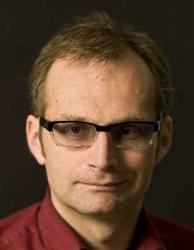ProjektBinäre komplex kolloidale Kristalle: Die Rollen von Substitutions-Unordnung und Stapelungsfehlern
Grunddaten
Titel:
Binäre komplex kolloidale Kristalle: Die Rollen von Substitutions-Unordnung und Stapelungsfehlern
Laufzeit:
01.07.2025 bis 30.06.2028
Abstract / Kurz- beschreibung:
Kristalle, die aus zwei verschiedenen Partikelsorten bestehen, zeigen – als Folge der Vielzahl an Variationsmöglichkeiten der Systemparameter – eine unglaublich reiche Vielfalt an geordneten Strukturen, die jeweils durch unterschiedliche physikalische Eigenschaften gekennzeichnet sind. Dies gilt insbesondere für Kristalle, die aus weichen Materiepartikeln (wie Kolloiden) bestehen, da die Eigenschaften jeder der beiden Arten auf scheinbar unbegrenzte Weise durch geeignete Syntheseprozesse angepasst werden können. Daher sind theoretische Werkzeuge, die es ermöglichen, die Eigenschaften der potenziell entstehenden Kristalle vorausschauend zu erforschen, sowohl aus wissenschaftlicher als auch aus technologischer Sicht dringend erforderlich. Der Fokus dieses Projekts liegt auf der Bewertung der elastischen, thermodynamischen und Transport-Eigenschaften solcher (binären kolloidalen) Kristalle, deren Eigenschaften – ähnlich wie bei verwandten Einkomponentensystemen – deutlich durch unvermeidliche Kristallfehler beeinflusst werden.
In dem vorliegenden Projekt basiert unsere Zusammenarbeit zwischen der Universität Tübingen, der Universität Konstanz und der TU Wien auf drei bewährten Ansätzen: der Dichtefunktionaltheorie, dem Projektor-Operator-Formalismus und der Molekulardynamiksimulation.
In dem vorliegenden Projekt basiert unsere Zusammenarbeit zwischen der Universität Tübingen, der Universität Konstanz und der TU Wien auf drei bewährten Ansätzen: der Dichtefunktionaltheorie, dem Projektor-Operator-Formalismus und der Molekulardynamiksimulation.
Beteiligte Mitarbeiter/innen
Leiter/innen
Mathematisch-Naturwissenschaftliche Fakultät
Universität Tübingen
Universität Tübingen
Institut für Angewandte Physik (IAP)
Fachbereich Physik, Mathematisch-Naturwissenschaftliche Fakultät
Fachbereich Physik, Mathematisch-Naturwissenschaftliche Fakultät
Lokale Einrichtungen
Institut für Angewandte Physik (IAP)
Fachbereich Physik
Mathematisch-Naturwissenschaftliche Fakultät
Mathematisch-Naturwissenschaftliche Fakultät
Geldgeber
Bonn, Nordrhein-Westfalen, Deutschland


